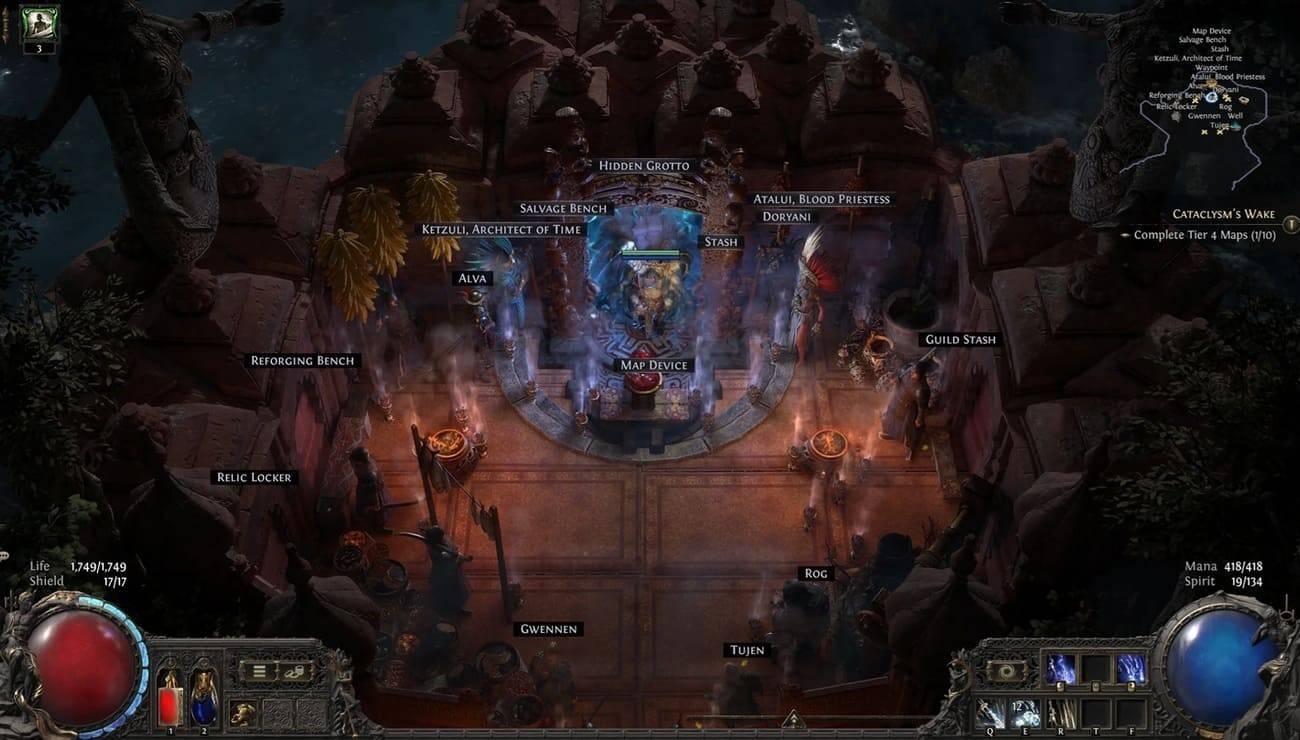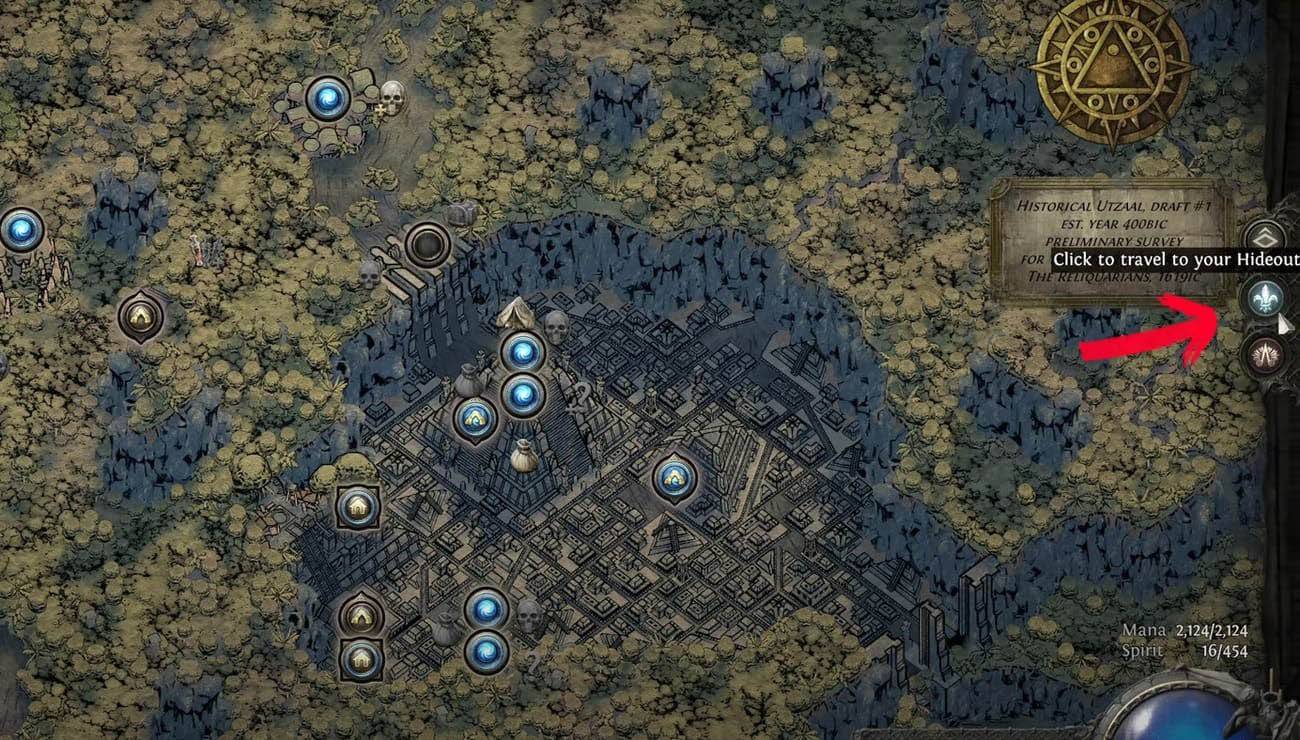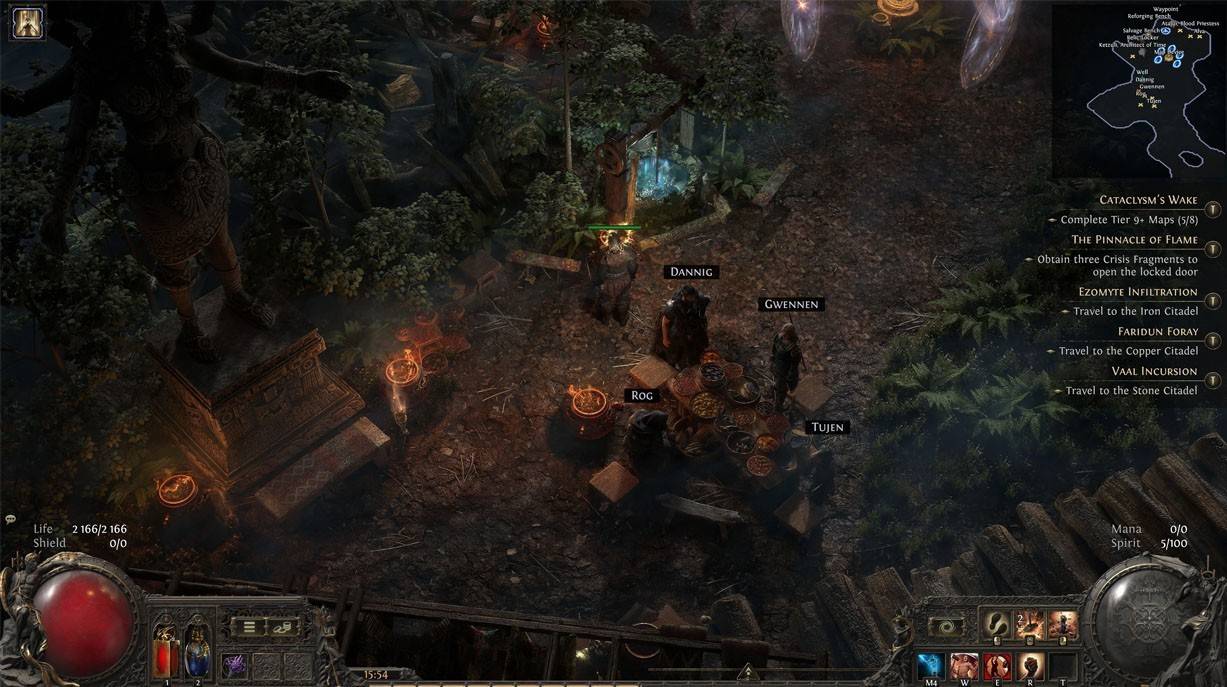In Path of Exile 2, your Hideout serves as a personalized sanctuary, a haven between perilous adventures. It's more than just a resting place; it's a fully functional base camp, complete with helpful masters and vendors, all customizable to your liking. Let's delve into the details of this invaluable space.
Also read: How to elevate your PoE2 builds with skill gems.
 Image: reddit.com
Image: reddit.com
Table of Contents
- How to Unlock a Hideout in Path of Exile 2
- What Types of Hideouts Exist?
- Hideout Customization
How to Unlock a Hideout in Path of Exile 2
Unlocking your Hideout requires completing several steps:
- Complete Act III twice – once on Normal and once on Hard difficulty.
- Unlock the Atlas of Worlds by defeating the final boss of Act III and speaking with Doryani.
- Locate a map with the Hideout symbol on the Atlas of Worlds. This is usually a quick process.
- Defeat all monsters within that map area.
 Image: ensigame.com
Image: ensigame.com
To access your Hideout, use the waypoint menu and select the Fleur-de-lis symbol on the right. Alternatively, for a quicker method, type /hideout in the game chat.
What Types of Hideouts Exist?
Initially, you'll only have access to one Hideout type. To unlock others, explore the Atlas of Worlds for new maps featuring Hideouts. Eventually, you'll have four options: Felled, Limestone, Shrine, and Canal. To switch between them, speak with Alva and select the desired Hideout from the menu.
Hideout Customization
Once you have your Hideout, the fun begins! Customize it to your heart's content. Arrange objects and NPCs, rotate and move items, add and replace decorations, and even import or export designs with other players.
 Image: youtube.com
Image: youtube.com
For optimal efficiency, consider placing essential NPCs like Doryani (item identification), Ketzuli (disenchanting), and Alva (currency exchange) near the entrance. Don't forget your Stashes and Waypoint! Remember, while functionality is key, aesthetics matter too—other players might visit your Hideout!
 Image: reddit.com
Image: reddit.com
Now you're equipped to establish your own personal sanctuary in Wraeclast! Enjoy customizing your Hideout to create the perfect base of operations.




















